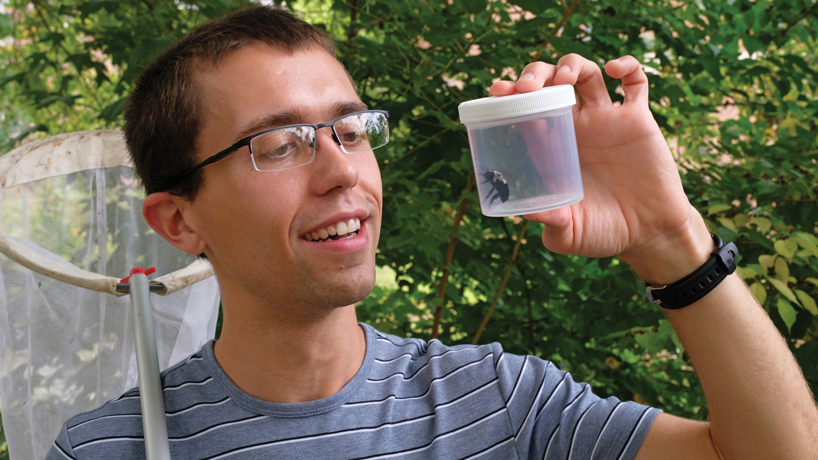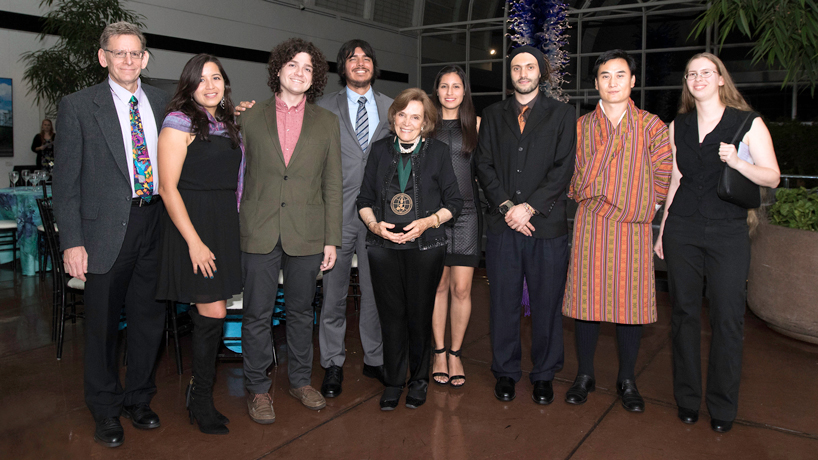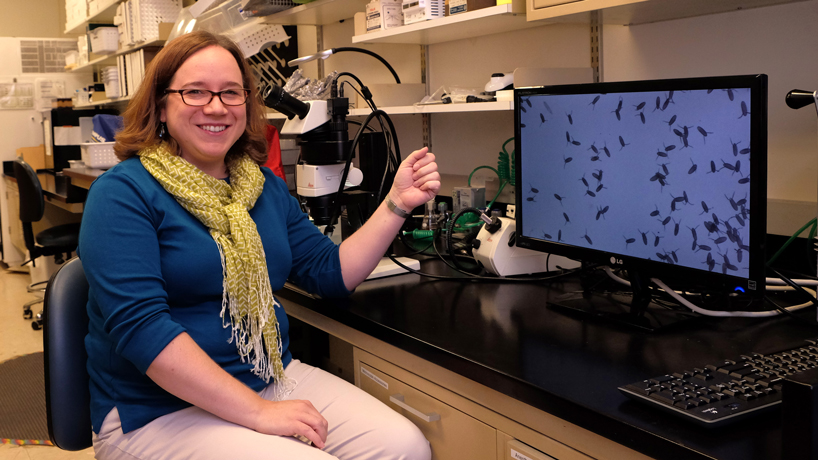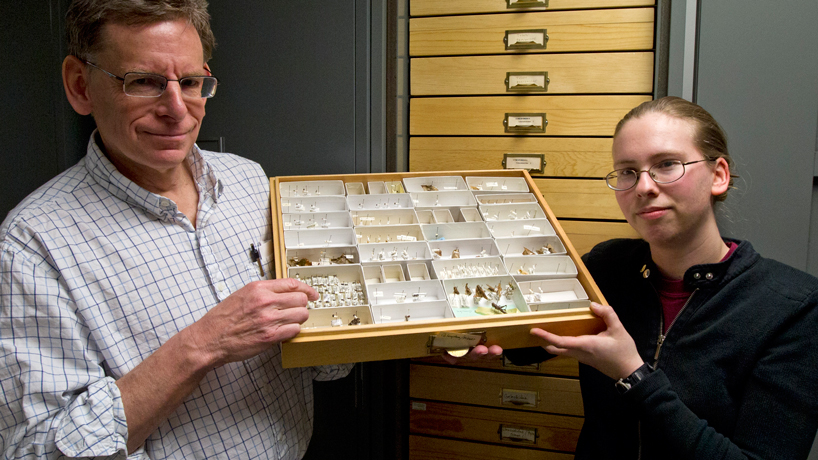The third-year doctoral student in biology is trying to solve why some species are in increasing danger of dying off while others thrive.


The third-year doctoral student in biology is trying to solve why some species are in increasing danger of dying off while others thrive.
The third-year doctoral student in biology is trying to solve why some species are in increasing danger of dying off while others thrive.
The third-year doctoral student in biology is trying to solve why some species are in increasing danger of dying off while others thrive.
Junior forward Mara Rieder and the women’s basketball team continued to roll, topping Rockhurst and Southwest Baptist on the road last week to improve to 8-0 in GLVC play.

A concentration of nature’s biggest advocates forms as UMSL graduate students – all budding conservationists – gather around 2016 World Ecology Award recipient Sylvia Earle.
A concentration of nature’s biggest advocates forms as UMSL graduate students – all budding conservationists – gather around 2016 World Ecology Award recipient Sylvia Earle.
A concentration of nature’s biggest advocates forms as UMSL graduate students – all budding conservationists – gather around 2016 World Ecology Award recipient Sylvia Earle.

Aimee Dunlap, assistant professor of biology at UMSL, co-authored a study that was recently published in the Proceedings of the National Academy of Science.
Aimee Dunlap, assistant professor of biology at UMSL, co-authored a study that was recently published in the Proceedings of the National Academy of Science.
Aimee Dunlap, assistant professor of biology at UMSL, co-authored a study that was recently published in the Proceedings of the National Academy of Science.

Robert Marquis, professor of biology, and Christina Baer, a doctoral student in biology, conducted a study that found leaf-tying caterpillars are inadvertently benefitting adult Asiatic oak weevils, an invasive species.
Robert Marquis, professor of biology, and Christina Baer, a doctoral student in biology, conducted a study that found leaf-tying caterpillars are inadvertently benefitting adult Asiatic oak weevils, an invasive species.
Robert Marquis, professor of biology, and Christina Baer, a doctoral student in biology, conducted a study that found leaf-tying caterpillars are inadvertently benefitting adult Asiatic oak weevils, an invasive species.

Many of the widely known facts about monarch butterflies that are presented in biology classes and nature documentaries, have come out of Lincoln Brower’s research.